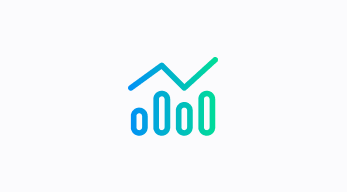
Liquefied natural gas (LNG)
Maximising opportunity in the new global LNG market
A key transition fuel for the new energy landscape
Providing a consistent and secure source of energy supply, LNG offers a solution to managing both costs and emissions. As LNG trade drives the globalisation of gas and intensifies competition from buyers in Asia and Europe, navigate the new gas landscape with ICIS, the leader in gas market intelligence.
Access independently sourced global spot price assessments and indices along with deep data sets, intuitive analytical tools, a news alert service and live tracking of 700 LNG cargo vessels, in one integrated solution.
Receive morning email alerts with detailed, up-to-date information on cargo diversion and location into all European terminals, plus tenders and outages, ensuring you stay ahead in dynamic LNG markets.
Identify opportunities with ICIS’ responsive, global LNG supply and demand forecasts featuring high granularity for key Asian markets. With a clear picture of demand up to two years ahead on a month-by-month basis, understand the factors influencing the future global LNG balance as well as how and why it has changed.
RELATED LINKS:

ICIS training
Keep up to date in today’s rapidly evolving commodity markets with expert online and in-person workshops and courses covering chemical and energy supply chains and market dynamics. ICIS offers a range of introductory and advanced topics as well as bespoke, in-house training.
Why subscribe to ICIS LNG?

Respond to Asian demand
Capitalise on opportunity with a transparent view of Asian demand fundamentals and shifts, highlighting their impact on global LNG market dynamics.

Optimise trade margins
Understand the competitive landscape with the ICIS arbitrage calculator and tenders database of commercial agreements made by global integrated energy companies.

Quantify outage impact
Instantly evaluate the result of plant outages on LNG supply and pricing, with ICIS’ unique, comprehensive LNG supplier database.

Accurately track cargoes
Monitor LNG cargoes in real time with a live tracker covering 700 vessels and featuring an algorithmic destination predictor that harnesses expert analysis and comprehensive historical voyage and aggregated flow data dating back to 2012.

Understand shipping dynamics
Gain a complete picture of trade and shipping dynamics with accurate and validated data on LNG cargoes and charter rates.

Get an expert view
Learn more about the market assumptions and methodology underpinning ICIS’ market outlooks, with direct access to a team of 100 ICIS energy experts.

Adapt quickly in liquid markets
Respond to events as they happen and trade ahead of the curve with prices, news and analysis of market-moving events as they unfold.

Seize opportunities
Understand the global LNG outlook with the event-driven ICIS LNG global supply and demand forecast.
LNG solutions
Stay ahead of dynamic energy markets with ICIS’ complete range of data services, market intelligence and analytics solutions covering LNG plus natural gas, carbon, crude oil and refined products, hydrogen, power and renewables. Visit Sectors to find out how we can set your business up for success.

Minimise risk and preserve margins
Remain competitive with reliable, up-to-date price forecasts, supply and demand, cost and margin data.

Adapt quickly as events unfold
Capitalise on opportunity and minimise exposure, with news and in-depth analysis of the key events impacting energy markets.

Maximise profitability in volatile markets
Benefit from a complete view of energy markets with integrated solutions featuring pricing, market commentary, in-depth analysis and analytics.

Model with accuracy
Optimise results with ICIS data seamlessly integrated into your workflows and processes.
Contact us
Partnering with ICIS unlocks a vision of a future you can trust and achieve. We leverage our unrivalled network of energy industry experts to deliver a comprehensive market view based on trusted data, insight and analytics, supporting our partners as they transact today and plan for tomorrow. Get in touch today to find out more.
